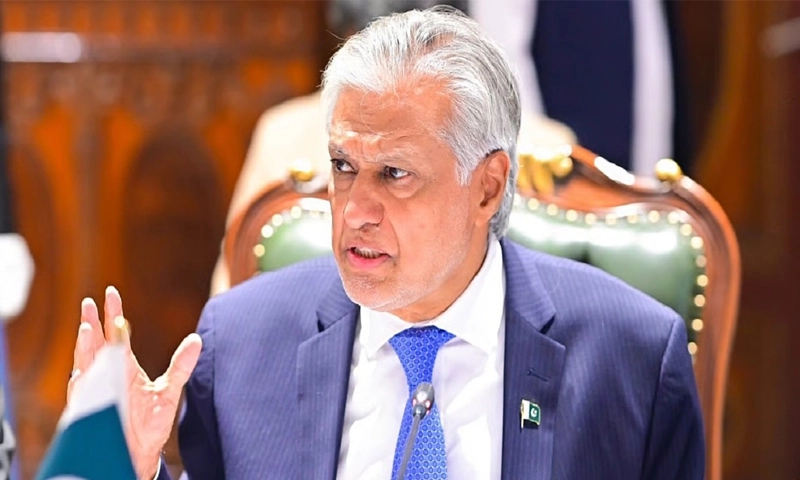- Web Desk
- Feb 19, 2026
Pakistan assumes UNSC presidency, vows ‘humility, responsibility’ in leadership
-

- Web Desk
- Jul 01, 2025

ISLAMABAD: Following the announcement that Pakistan has taken over the presidency of the United Nations Security Council (UNSC), Foreign Minister Ishaq Dar stated that the country will lead with humility, responsibility, and a commitment to the UN Charter. This marks Pakistan’s eighth term as an elected member of the Security Council.
FM Dar asserted that Pakistan will chair key discussions, including the quarterly debate on the Palestinian issue, and preside over a meeting on cooperation between the UN and the Organisation of Islamic Cooperation (OIC).
“Pakistan desires comprehensive, balanced, and practical outcomes,” Dar said, highlighting the growing intensity of global conflicts and humanitarian crises. He assured that Pakistan would work closely with all member states to achieve balanced and effective solutions.
Pakistan urges UNSC to stop Israeli ‘aggression’ against Iran
“We are fulfilling our role with a sense of global responsibility, humility, and determination,” the foreign minister added.
Pakistan’s presidency comes at a critical time as the Security Council faces mounting challenges, including escalating tensions in the Middle East and other conflict zones. Islamabad has reiterated its commitment to multilateralism and constructive engagement during its tenure.
Two weeks ago, Pakistan called on the UN Security Council, which met in emergency session hours after Israel’s deadly air strikes against targets in Iran, to stop “this aggression immediately” and hold the aggressor accountable.
“This Council must deny Israel the free hand and the impunity with which it continues to operate in defiance of international law and international opinion,” Ambassador Asim Iftikhar Ahmad, permanent representative of Pakistan to the UN, told the 15-member Council, while denouncing Tel Aviv’s “unjustified and illegitimate aggression” against Iran.
Iran demands UN recognise Israel, US ‘responsibility’ for war
“Iran has the right to self-defence under Article 51 of the UN Charter,” he said, adding that Israel’s actions in Gaza, Syria, Lebanon and Yemen “reflect a continuing pattern of unilatera militarism”.
During the debate, the Council’s members largely agreed that de-escalation and diplomacy are imperative to avoid further strain in a region already suffering under the weight of compounding conflict.
Iran’s Foreign Minister Abbas Araghchi also requested the Security Council meeting, saying Israel “has now crossed every red line, and the international community must not allow these crimes to go unpunished.
Among those supporting the request for the Council meeting were Pakistan, China and Russia.




